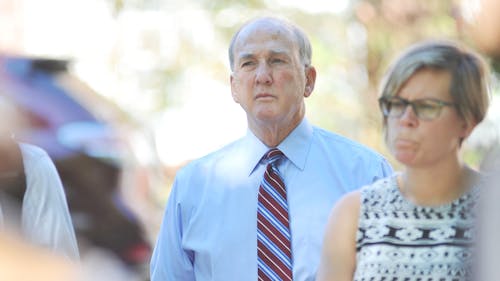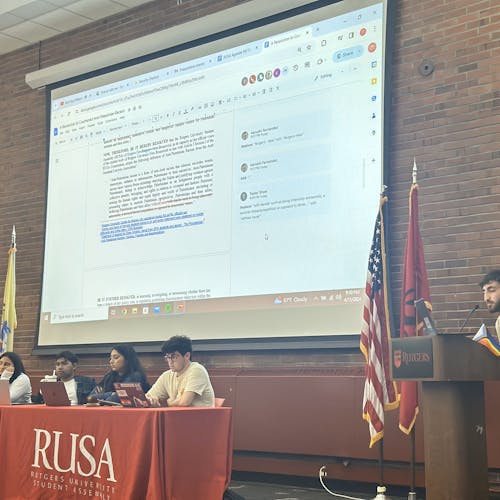University President falls short in social media presence

The primary means by which students keep up with University news is through sharing articles on Facebook, said Sneha Choudhdary, a School of Arts and Sciences sophomore.
But this mode of communication is not straight from the University president’s office.
University presidents mainly communicate through emails or newsletters, said Karla Dimatulac, a School of Arts and Sciences sophomore.
“We never really hear news from (there) unless something major happens, like the DDoS attack last year,” Dimatulac said.
The email and texting systems often don’t function properly, Choudhdary said
“I never got an email (to my Rutgers account) about any of the student deaths that occurred last year,” she said. “I don't think (information is) always well publicized to students who aren't involved.”
The only means of contacting University President Robert L. Barchi is through an email submission form or by calling his office, which has a full inbox, Choudhdary said. The lack of a social media presence from the University president has allowed for other representations of Barchi to surface.
“Rutger colege,” a popular Facebook page with more than 2,100 likes, is a mock-news page about University events and includes several references to the Rutgers administration and Barchi.
The satire posted by "Rutger colege" is presented “in a tasteful and humorous way,” Choudhdary said. The page is purposefully written with misspellings, poor grammar and common Internet tropes that University students easily understand.
"The way that they poke fun at Barchi is usually so outrageous that no one would take it completely seriously, but still understand what issues are going on in the community,” Choudhdary said.
Dimatulac also agreed that the satirical Facebook page “pokes fun at Rutgers’ inefficiencies.”
Although Barchi does not have a personal imprint on social media, Vice Chancellor for Student Affairs Felicia McGinty has an active online presence. She has a Twitter account that she updates every few days with the handle @FeliciaMcGinty. The account includes selfies at Rutgers events, hashtags and retweets of inspirational quotes.
When administrators are not available online, they do attempt to communicate with the student body through in-person events.
The most recent interaction between administrators and students was on Oct. 28 at a town hall meeting hosted by the Rutgers University Student Assembly (RUSA). Meetings like this are conducted every semester to host an open forum for students and administrators to discuss their concerns with the University, said Mohamed Asker, a School of Arts and Sciences sophomore.
Asker, who is also a member of RUSA, said at the meeting, a table was set up for each department head, and students got the chance to have small discussions with each administrator. The students rotated every 10 minutes, allowing them to speak with every department present at the meeting.
“This was much better than the previous styles where it was just a Q&A where students weren't allowed to respond to an answer,” Asker said. “Essentially, we gave students full access to each administrator, and they were given (an) opportunity like no other to actually question them until they were satisfied.”
Fourteen administrators were present from more than six departments, including Dining Services, Facilities, Public Safety, Student Affairs, Office of Information Technology, Academics, Enrollment, Transportation and Housing, Asker said.
The meeting’s turnout was significantly greater than previous instances, with more than 100 students attending, Asker said. The previous record was about 60 students before the last meeting.
Rutgers University Public Affairs, all University governing councils, along with several social justice, cultural and religious organizations attended the last town hall meeting, all with their individual concerns about the University,
While Barchi himself was not present at the meeting, he does attend RUSA meetings every semester, creating an indirect means of communicating with the student body, Asker said.
“I feel like the average student isn't necessarily connected to administrators unless they go out of their way to do so,” Asker said. “Unless you're attempting to enact change or you're a student leader, then I think it's very rare for students to interact with administrators.”



